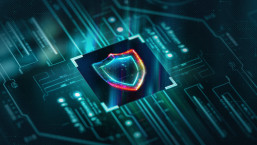Welcome to this week’s security review, which includes detail on the evolution of Nemucod, how to spot if your child is being cyberbullied and thoughts on Windows 10 – from a security and privacy point of view – one year on from its launch.
Nemucod ups its game
It was revealed that the developers of the Nemucod downloader have been busy at work, investing time and energy in “polishing their code”. Writing for WeLiveSecurity, Donny Maasland, head of cybersecurity services and research at ESET Netherlands, said that the latest version is a lot more sophisticated. He said: “One can even speculate that they are working hard to improve their success rate in corporate environments, where proxy servers and UTM gateways may have been blocking their payloads in the past.”
Windows 10 security and privacy: An in-depth review and analysis

Windows 10 security and privacy
On the eve of the one year anniversary of Windows 10, ESET’s Aryeh Goretsky reflected on how the operating system has performed over the last 12 months with a detailed white paper. In a blog for WeLiveSecurity, he said that this latest version marks a “sea change for Microsoft” – in particular, the “the realization of its Windows as a Service strategy”.
Do you know if your child is being cyberbullied? These are the red flags
As the world marked Stop Cyberbullying Day, ESET’s Ondrej Kubovič delivered a timely guide to help parents spot the warning signs that their child may be impacted by cyberbullying. Raising awareness of this is important because the more digital life becomes, the more likely it is that bullying migrates online.
VerticalScope experiences major data breach: 45 million records stolen

Over 45 million records were stolen in a major data breach at VerticalScope, it was revealed. It was reported by LeakedSource that this security incident has affected up to 1,100 websites and took place a few months ago. “We believe that any potential breach is limited to usernames, user IDs, email addresses, and encrypted passwords of our users,” said Jerry Orban, vice-president of corporate development at VerticalScope, in an email to ZDNet.
Quantum Computation: A cryptography armageddon?
ESET’s Cassius Puodzius delivered an in-depth feature on cryptography, focusing specifically on quantum computing. He highlighted that because of the progress made in cryptanalysis, what we understand as being secure is changing. For example, “RSA, which once was believed secure under 129 bit-keys, nowadays is not considered secure using keys smaller than 2,048 bits”.
Apple looks into the benefits of differential privacy

At its most recent keynote, event Apple revealed that it has been looking into differential privacy. This method ensures that data can be analysed and insight gained, while still maintaining the anonymity of individuals from which it is collected. Craig Federighi, senior vice president of software engineering at Apple, said: “Apple has been doing some super-important work in this area to enable differential privacy to be deployed at scale.”




